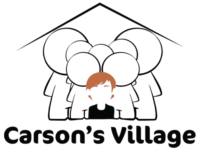Depending on the circumstances of the death of your loved one, the media may be interested in sharing your story to local news, newspapers, or other publications. It is important to consider the full extent of talking to the media prior to agreeing to the interview. This resource may be particularly useful for those who do not have experience with dealing with the media or interview situations.
Questions to ask yourself:
- Do you want your story to be public?
This may seem like an obvious question, but the implications of communicating the details of your loss may expose you to others in a way that can be uncomfortable. If you think spreading awareness of your story to others would outweigh any negatives to losing your personal privacy, then speaking to the media could be something you consider. If going to the media is something you are uncomfortable with and you would like to make an impact, consider sharing your story yourself with an audience of your choosing.
- What would you like to happen because of the interview?
Asking yourself why you would like to be interviewed can help you guide the interviewer in a productive direction during the interview. If you would like to spread awareness or ask something of the public, for example, you might prefer different questions. It is also okay to go into the interview without expectation of a response.
- Is the request for the interview from a good source?
Not all news outlets and reporters are created equal. Consider checking the legitimacy of the interview request by visiting their website, reading other similar interviews, or asking for a consultation or meeting with the interviewer in advance.
- Are there any topics you would not like to speak about?
Communicating about loss can be incredibly challenging and this is particularly true with an interviewer you may not know. Think in advance about any topics or questions that might be triggering for you or cause you undue stress to speak about. It is important during sensitive conversations to draw boundaries in advance or take any breaks you might need to protect your mental health.
- Are you comfortable being interviewed?
Being interviewed may be uncomfortable depending on the medium of the interview. Consider if you are okay with being on camera, if you would like your voice recorded, or if a written correspondence style of interview would be best. Generally, it isn’t recommended to do a live interview – one that would be shown on television – if you do not have any experience with interviewing.
- Is there an active criminal investigation?
If you are in a circumstance where there is an active criminal investigation, you need to make sure that you do not do anything to jeopardize or interfere with the progress of the investigation. Speak to any relevant personnel at the police department to ensure that you are complying with the department’s wishes and procedures prior to the interview.
- Are any minors involved in your narrative?
Ensure that you do not release the personal information of minors. This includes but is not limited to their name, address, contact information, or anything that can identify them to the public. If the minor’s parent or guardian has expressed explicit approval of releasing their information, you might still want to discuss the matter with the interviewer.
Handling interview requests
Once you have decided you would be open to the possibility of an interview, knowing questions to ask when handling an interview request can be helpful to ensure your comfort. Do not be afraid to ask questions and make requests in this time, it is your story to tell, and you can control as much or as little as possible with the process.
- Where will the interview be used?
Asking when and where the interview will appear can help you coordinate the interview with other relevant tasks, like informing family members for example.
- What questions will you be asking?
What sort of questions or dialogue will the interviewer be asking are important to determine their goal with the interview as well as prepare yourself for responding.
- Is there anything the interviewer may want to see?
Bringing pictures or memorabilia might be useful for the interviewer or part of their intended story. Be sure to think through these items with your family prior to the interview.
- Where will it take place and how long will it take?
This practical question will help you to plan around your schedule as well as understand the depth they would like you to go into in the interview. If they would like just a couple of quotes from you versus an in-depth interview you may need to think about your answers accordingly.
Selecting the place for the interview can be totally up to your comfort. If you would like to host at your house in your space, somewhere in public, or in a more neutral area that can be up to you.
- Will you make the full interview available anywhere?
Asking what will happen with the full, unedited interview is a good precaution to take if you are worried about privacy for any of the details.
Sample questions to prepare for
Below are some questions you might have asked regarding the loss of your loved one. Some of these questions might seem inflammatory or rude, remember you don’t have to talk about anything you don’t want to.
- Describe your loved one. What were they like? What were their favorite activities?
- How did you lose your loved one?
- What do you want people to know about your loved one? About the loss of your loved one?
- Do you think their loss could have been prevented?
